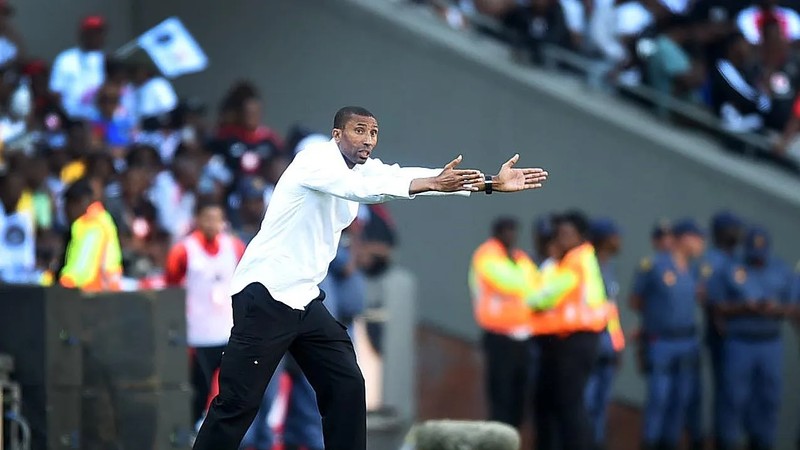The debate over whether “showboating” has a place in local football certainly won’t end anytime soon. It’s been ongoing since the days when even the Pope was still an altar boy.
So, perhaps it’s best for everyone involved in the beautiful game to understand that while showboating can have an impact or not, it shouldn’t always be met with criticism or a source of encouragement.
Acts of showboating were on full display from both Kaizer Chiefs and Orlando Pirates at the “spiritual home” of South African football, Soweto, this week.
Mduduzi Shabalala 🤝 Bradley Cross
They turned it on at the Dobsonville Stadium 🔥#SSFootball | #TotalEnergiesCAFCC pic.twitter.com/0Xh9ADqsCp
— SuperSport Football ⚽️ (@SSFootball) October 27, 2025
Chiefs turned up the heat en route to the CAF Confederation Cup group stage at Dobsonville Stadium when they led 3–0 against AS Simba. Pirates followed suit when they led 2–0 against Magesi in the Carling Knockout quarter-final at Orlando Stadium.
The showboating brought joy to supporters in the stands, which, after all, it is what football is about: bringing happiness to the millions who pay to watch the game, whether at the stadium, from the comfort of their sofas, or at designated fan zones.
But be that as it may, the loss of momentum that followed due to it nearly came back to haunt both teams. Chiefs and Pirates each conceded late in their matches, leading to nervy finishes.
Pirates’ coach Abdeslam Ouaddou was clearly livid during his post-match press conference deep in the bowels of Orlando Stadium. He criticised his players’ lapse in concentration caused by showboating, insisting that he wasn’t at the club to be part of “a circus” nor was he there “for jokes”.
His reasoning was valid. He believes football is about scoring goals, something especially crucial in league matches, where goal difference can be decisive.
However, in the same breath, Ouaddou must know that showboating has long been part of South African football culture. Neither he – nor those before or after him – will change that overnight.
So instead of lambasting his players publicly, he might have been better off addressing the issue privately after the match, explaining what he didn’t like, especially during crucial stages of the game, rather than justifying his views to the media.
Everyone knows football is won with goals, and players need to score. But nothing in the rules forbids holding onto the ball with any part of the body – except the arms – for a period of time.
Then there’s the question of disrespect. SA football legend Hlompho Kekana, speaking on SoccerZone, criticised Chiefs players – notably Bradley Cross and Mduduzi Shabalala – for showboating, calling it disrespectful to their opponents.
⚽️ 𝑺𝒐𝒄𝒄𝒆𝒓𝒛𝒐𝒏𝒆 ⚽️
𝐼𝓉’𝓈 𝓉𝒾𝓂𝑒 𝒻𝑜𝓇 𝒮𝑜𝒸𝒸𝑒𝓇𝓏𝑜𝓃𝑒!
🚨 LIVE
📺 SABC 1
🌐 https://t.co/26PdrPrnVE #SABCSportFootball #Soccerzone pic.twitter.com/OZ8BNizeop— SABC Sport (@SABC_Sport) October 27, 2025
It’s a puzzling accusation. The ball was in play, on the pitch, and used within the rules. So if Chiefs used showboating as a tactic to kill time and entertain their fans, was that really a sign of disrespect?
We’ve seen truly disrespectful acts in football such as ball boys deliberately delaying play when opponents are in advantageous positions. That’s disrespect to both the game and the opposition, especially since such behaviour is often encouraged by club officials.
There’s also the act of players falling to the ground and faking injuries just to waste time. That too can be viewed as disrespectful, because it forces the referee to stop the match unnecessarily.
Yes, it’s true that such antics have no place in European football, and players there wouldn’t be selected for repeatedly showboating. But there’s also an argument that not everything in football needs to please the outside world as one moment of flair doesn’t define a player’s ability.
I’m not claiming to be the authority on whether showboating is good or bad for South African football. But there is certainly room for everyone involved in the game to engage, educate, and better understand one another on the matter.
